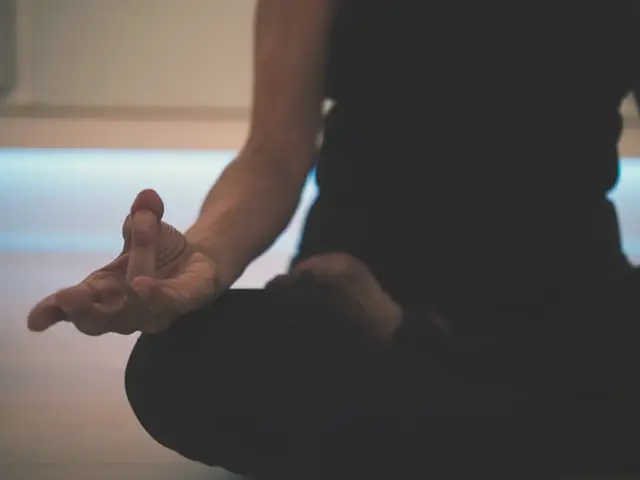Last year, I finally committed to a “daily yoga practice”. A daily practice was never something that I had felt the need to do before, and it was not a I-need-a-hobby lockdown decision. I was happy with attending a studio class twice a week, but then I went on a yoga retreat in 2019. It’s not an over exaggeration to say my mind was blown, and I signed up for a teacher training yoga course, which comes with a commitment to practice every day.
Now, what “practice” means can vary from person to person. For me, it does not mean a one-hour physical practice every day. My commitment is to movement, meditation and mindfulness. It could be a one-hour practice, or it’s recognising that my mind is feeling heavy and a 10-minute meditation would be helpful. I also want to emphasise that I seriously doubt whether I would have been able to make this commitment without the lots of extra time the restrictions on our personal freedom last year gave us.
I think this is a central point to yoga that no one teaches you in a studio class. “Asana”, our physical practice, is just one aspect of yoga. The others being moral and ethical considerations, breath control, withdrawal of senses, medication, concentration. In yoga philosophy, it’s only through practising all these limbs that an individual might reach fulfilment “samadhi”.
When I started practising yoga nine years ago, it was all about the physical practice. Having never been concerned with physical exercise, I finally felt like I had found my “thing” and threw myself into every ashtanga and vinyasa flow class I could find. I was in my early twenties, strong and flexible, and I was feeling great!
In more recent years, I have craved a softer yoga practice. Something that helps me relax after a busy workday or take my mind of the challenges that come with basic “adulting”. The yoga sutras teach us that yoga is the cessation of the movements of the mind, and that through the steps of yoga we can learn to not get attached to the highs or lows of life. It’s a mental attitude that can help us all as we journey through life.
For me the connection to the breath is one of the most important aspects of a yoga practice, and also the gift to take with you as you go about your day. In stressful situations, I often now think “am I breathing?” – and by that I mean big, deep calming breaths. When we are stressed our breath becomes shallow. We literally “hold our breath” until the situation passes. Whenever I teach a yoga class, I will always lead with the breath in the hope that it’s a useful tool for students to take off the mat with them.
Yoga has been central to maintaining connection during lockdown. The yoga community has been a huge comfort. During my teacher training course, I met some lovely women who were both open and honest about their life and lockdown experiences, and since March 2020 PLMR has organised two weekly yoga sessions, which have been a new way for me to bond with my colleagues. As a teacher, I’ve spent time leading sessions for family, friends and colleagues and felt more connected to people in my life than ever before – all whilst on lockdown and spending time mostly alone.
While I gladly welcome life starting to get back to normal, I hope we can remember to keep some of the good from lockdown – the slowness, the time to breathe, and walks in nature. I also know that worries about whether my daily practice will suffer will be unfounded. We can all find 10 minutes to sit in silence and consciously breathe, right?
On Friday 21st May, it’s World Meditation Day. If anything in this blog has caught your attention, maybe use five minutes today to think about how you can build your own daily / bi-weekly / weekly practice. And if you’re a PLMR friend we would love to invite you to join our yoga classes!





